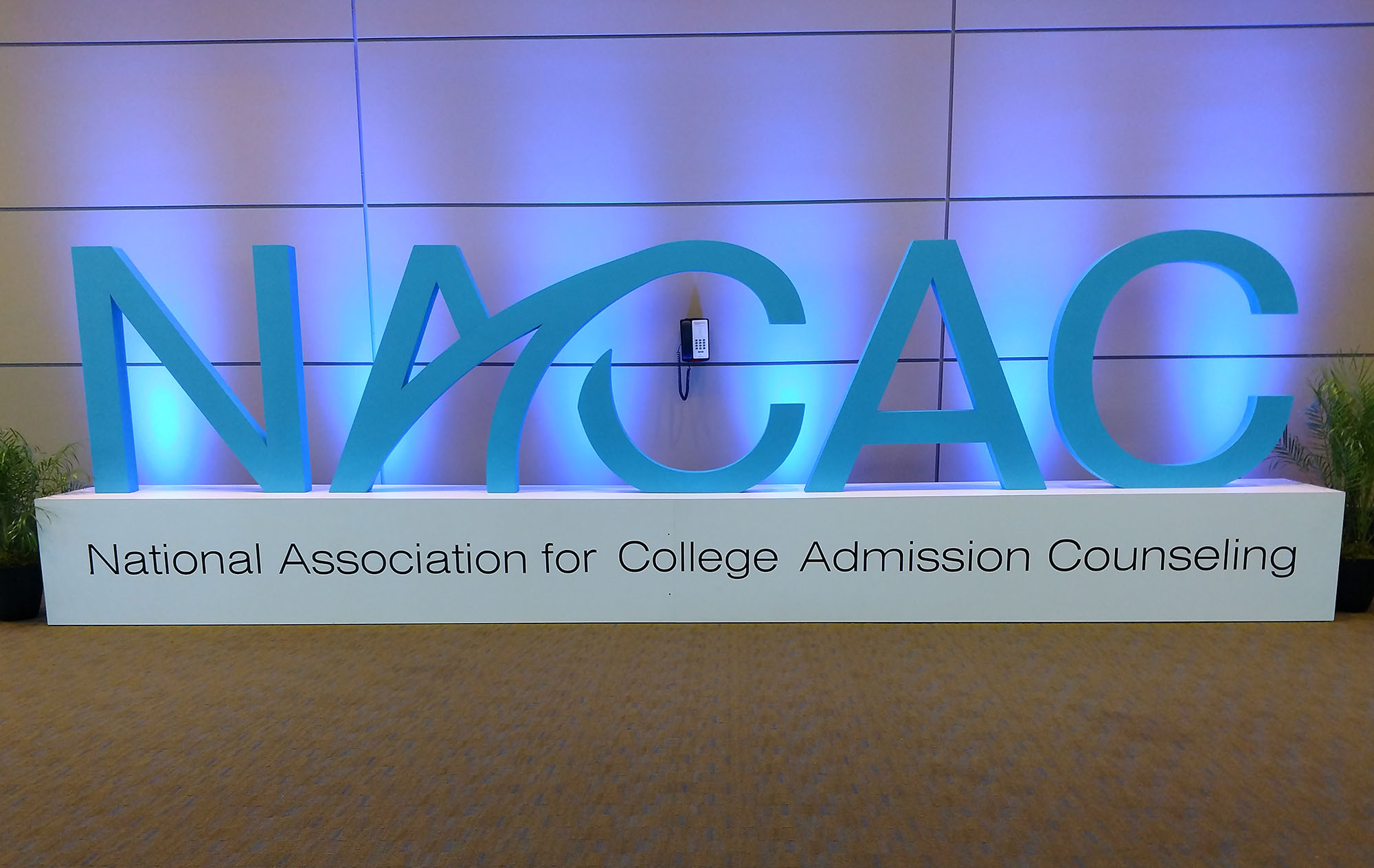College Register, NHI News
NHI makes connections (and questions conventions) at NACAC

The just-concluded annual conference for the National Association for College Admission Counseling (better known as NACAC) in Boston featured a compelling and direct challenge to the assembled gatekeepers for higher education from keynote speaker Shaun R. Harper, a professor at the University of Southern California’s school of education and executive director for the university’s Race and Equity Center.
“Your profession is 80 percent white. It’s even whiter when we get to those who are at the top levels. It sure would be nice if a mostly white professional association and its members more powerfully, more responsibly and more loudly advocated for racial justice on behalf of those who don’t have the resources that they deserve in high schools across our nation.”
The National Hispanic Institute’s Julio Cotto and Zachary Gonzalez, noticing NHI was the only Latino-identifying organization at this large annual conference, certainly saw some resonance in what Harper was saying.
“Dr. Shaun Harper’s words were powerful because he examined the attitudes, practices, beliefs, and data that undermines children’s educational development and ruins lives,” said Gonzalez. “We can all prevent racial injustice by bringing awareness to challenges we face as a nation, but more importantly addressing how we can craft new narratives that provide us a positive future, especially for kids.”
“He certainly challenged the delegation in their thinking,” Cotto added, regarding the speech. “It definitely set a tone challenging conference goers to look into new organizations, new ways at evaluating their effectiveness, and the policies that guide their work. For us, it was important to see the community challenged about groups like Latinos in particular. However, it also shined a light on how slow social progress occurs. We are still debating diversity, access, and equity.”
As Cotto went on to explain, “We are happy to be part of the conversation but mostly driven by the chance to expand NHI’s reach of our mission. Our means of helping students achieve success is by investing in their human capacities, and in maximizing their potential by harnessing the leadership they possess inside. If there is any college access strategy we might have, it is that by helping a student become a leader, we will ultimately help them become a better student with more opportunities and preparation to navigate the admissions journey.”
Cotto noted that for many college administrators—even those especially eager to bring Latino students into their schools—they think about Latinos who are first-generation college students or those who impacted by DACA. While Cotto grants these issues are important, he’s concerned that emphasis on those segments of the Latino college student population gets into a needs-based rather than asset-based view.
“As the only Latino organization there,” Cotto noted, “we drew in all sorts of conversations from diversity policies, affirmative action, DACA policies, bilingual education, and questions like, ‘I have a growing Latino population, can you help me with that?’ It shows that there is still a limited national perspective on Latinos as a powerful sector of not only potential applicants, but future civic leaders that make policy and affect change with their ideas. We spent time framing and contextualizing NHI from the asset-perspective and helping educators and recruiters know we do operate in traditional race-based or diversification conversations.”
On the whole, though, NHI knows the important role NACAC has in forwarding the conversation about college admissions. NACAC honored Ernesto Nieto and Gloria de Leon’s work in the late 1990s, and ever since 2002, NHI has participated in NACAC. “Colleges we met were looking for creative and innovative ways to identify top notch applicants from communities like the Latino community, but some schools were also looking to find unique causes and missions to partner with,” Cotto noted. “NACAC has been and continues to be a place for partnerships to forge, ideas to converge, and opportunities to make realities.”
“NACAC was special because it helped NHI rekindled relationships across the United States that we’d wanted to bring back for years now,” Gonzalez added. “The brand, now nearly 40 years old, is respected in the world of higher education and relied upon by many.”

Comments (0)